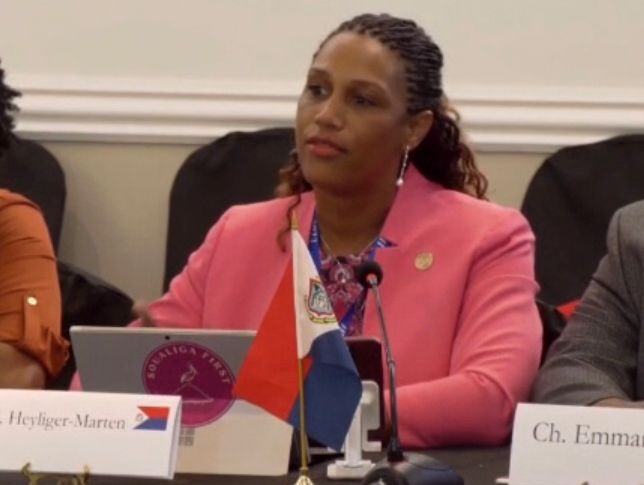GREAT BAY, St. Maarten — “Electoral reform should not only address the topic of integrity and so-called ‘ship-jumping’; it should first and foremost focus on what appears to be the main cause of political instability on all islands of the former Netherlands Antilles since 10-10-10.” This is the opinion expressed recently by Minister of Tourism, Economic Affairs, Traffic and Telecommunication, Grisha Heyliger-Marten.
According to the minister, the main cause of political instability is “the switch to a dualistic system of Government.”
“Before 10-10-10, with one or two exceptions, (coalition) Governments on the islands of the former Netherlands Antilles always lasted a full term of four years. This was because elected officials (Island Council members) could retain their seats while taking up the appointed position of Commissioner in the Executive Council,” the Minister explained.
This system, she said, prevented political opportunists from throwing down governments for purely selfish, personal reasons.
According to the Minister, “the argument that dualism is ‘better for democracy’ is not a valid one, seeing that many Governments around the world, including those in the Caribbean region and in England, have a system in which an individual could hold legislative and executive positions simultaneously. And nobody would argue that those countries are not democratic.”
Heyliger-Marten pointed out that another direct disadvantage of switching to the dualistic system is the “considerable financial burden that it places on our national budget.” She added that “instead of receiving an allowance for being an Island Council member, in addition to being Commissioner, Parliamentarians now receive a full salary.”
The indirect financial disadvantage of moving to the dual system is that “with each (more frequent) fall of Government, outgoing Ministers receive a financial severance package.”
“Moving back to the previous system would save the taxpayers large amounts of money and increase political stability. This is a clear win-win, which I hope will be considered during the process of electoral reform, the Minister said.
“I hope that the current and next Parliament of St. Martin will be able to address electoral reform in a constructive and expeditious manner, because it is urgently needed in order to ensure the stability of our governing structure as the foundation for our progress as a nation,” Heyliger-Marten concluded.





























